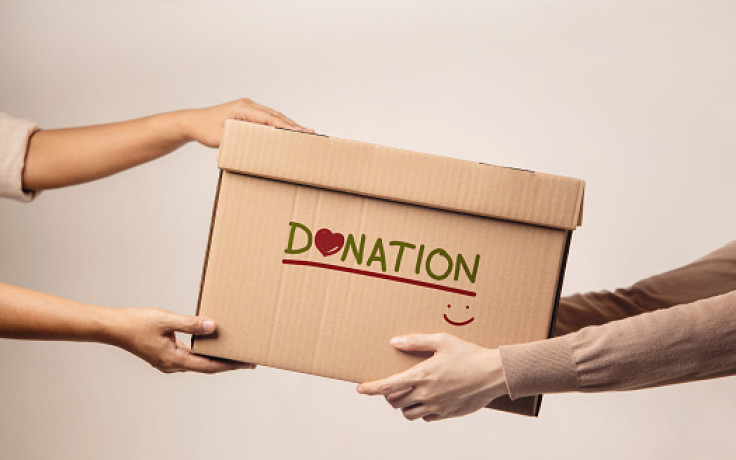Hurricane Ian: FBI, NCDF Warn About Charity Scam; Here's How To Avoid Becoming A Victim
As Hurricane Ian ravages Florida and South Carolina, among other states, leaving destruction and devastation in its wake, unscrupulous individuals see this as an opportunity to exploit people's generosity.
The FBI's Tampa office took to Twitter to warn people about these scammers, urging people to "be vigilant and not let them succeed."
Before donating to a charity, people must do their research and ensure it's a legitimate organization, the bureau added.
Watch out for scammers trying to use a natural disaster like Hurricane Ian to steal your money, your personal information, or both. The #FBI has some tips to help you steer clear of disaster fraud: https://t.co/07GtDNJ6Ol. pic.twitter.com/bEKdV9nSag
— FBI Tampa (@FBITampa) September 30, 2022
The National Center for Disaster Fraud (NCDF) has also issued a warning to people affected, stating there could be an increase in fraud attempts owing to the hurricane.
"Fraudsters who target individuals who are already suffering from the aftermath of a hurricane are despicable and their actions are inexcusable," said Ronald C. Gathe Jr., U.S. Attorney and Executive Director of the NCDF.
"We're still in hurricane season, so it's important for people to be aware of fraudsters who try to profit from natural disasters through identity theft schemes and fake charity solicitations. This is especially important for citizens of Florida, South Carolina, and other states impacted by Hurricane Ian," he added.
How to spot a charity scam?
Fraudsters are always on the lookout for new victims, and they often exploit current events to get maximum impact. This might be during or after a natural disaster, war, etc. By piggybacking on something that's already in the news, they can take advantage of people who are vulnerable or distracted.
And, because people are all the more connected than ever before, thanks to social media and the 24-hour news cycle, it's easier for scamsters to reach a broad audience.
By being aware of these patterns, people can be more vigilant in spotting suspicious activity and protecting themselves from becoming victims of these scams.
Signs to look out for:
One of the most common warning signs of a scam is when a charity refuses to provide detailed information about its programs or finances. Other warning signs include high-pressure tactics, such as requiring an immediate donation, promises of guaranteed results, and soliciting donations by mail, phone, or email without the donor's permission. Scamsters use emotional appeals that are vague or overly general.
Here's how to spot a charity scam:
- The charity is newly established or lacks a track record
- It is not registered with the state in which it is soliciting donations
- Does not have a professional website
- Uses a post office box instead of a physical address
- Uses a pay-to-call phone number and high-pressure tactics to solicit donations
- Refuses to provide information about its programs or finances
- The charity's name sounds like that of a well-known, reputable charity
If you come across any of these concerning behaviors, be sure to report it to tips.fbi.gov so they can investigate and help prevent others from becoming a victim.
How to avoid becoming a victim?
- Do your research and ensure that the charity is legitimate
- Don't give out personal information. Be wary of any charity that asks for your personal information, such as your Social Security number or bank account information
- Be suspicious of any attachments that you receive in an email, text message, or social media message. These attachments may contain malware that can steal your personal information
- Don't respond to unsolicited requests for donations
- Beware of high-pressure tactics. Don't let anyone pressure you into donating
- Don't be afraid to ask questions or to research the organization further. Trust your gut, if something doesn't feel right, it probably isn't

© Copyright IBTimes 2024. All rights reserved.












